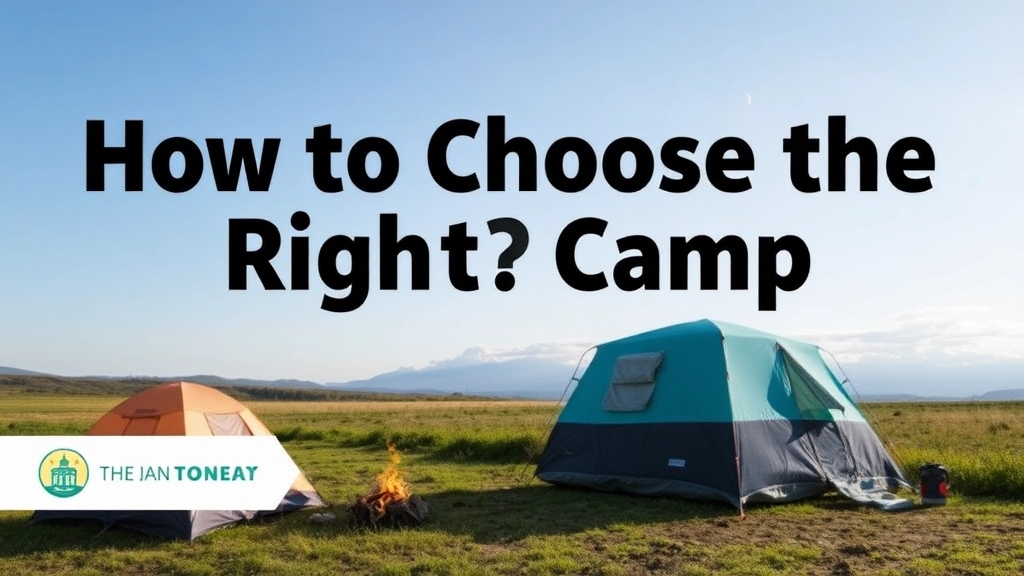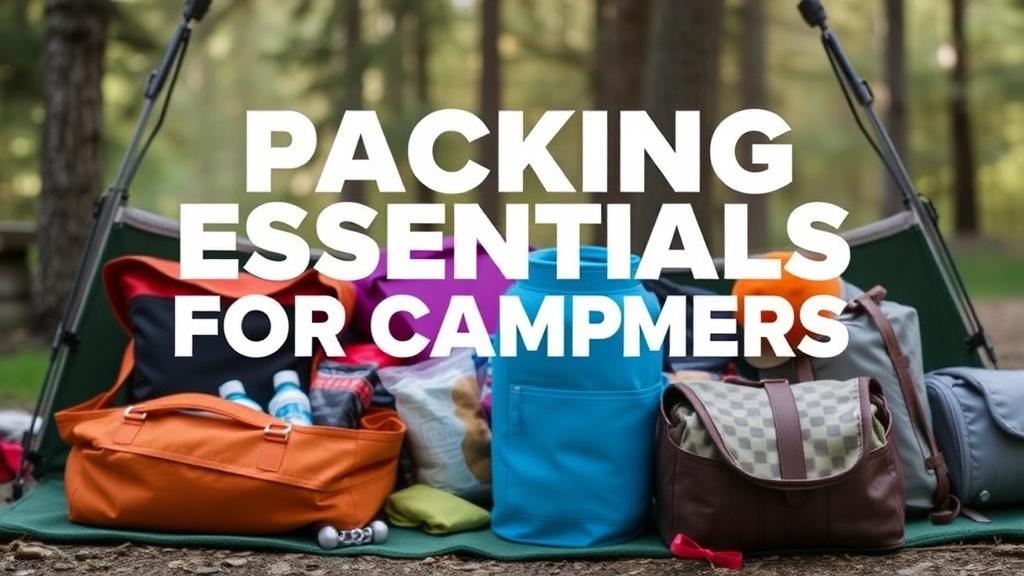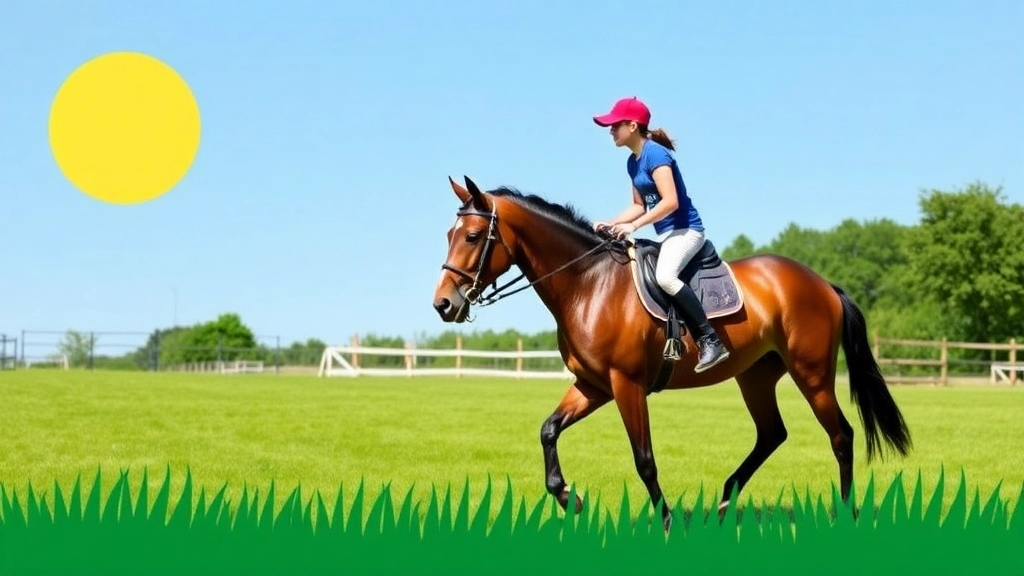Considering Equestrian Summer Camps
Thinking about sending your child to an equestrian summer camp? You’re in for an adventure packed with excitement, learning, and lifelong memories. In this article, we’ll explore the various types of equestrian summer camps, the key activities they offer, and the incredible benefits of attending. From choosing the right camp to ensuring safety and packing essentials, we’ve got you covered. Plus, we’ll share real testimonials and answer frequently asked questions to help you make an informed decision.
What Equestrian Summer Camps Offer
Equestrian summer camps offer more than just horseback riding; they provide a comprehensive experience that builds confidence, physical fitness, and social skills. With specialized camps like dressage, show jumping, and therapeutic riding, there’s something for everyone.
What to Expect
We’ll guide you through the process of selecting the perfect camp, highlight essential safety measures, and even share packing tips to ensure your child is well-prepared. So, saddle up and dive into the world of equestrian summer camps—where every ride is a step toward growth and adventure!
Types of Equestrian Summer Camps
So, you’re thinking about sending your kid to an equestrian summer camp, huh? I get it. You want them to have a blast, learn new skills, and make some memories. But with so many options out there, how do you even begin to choose? Let’s break it down.
Day Camps vs. Residential Camps
Day Camps
Day camps are perfect if you want your child to experience the thrill of horseback riding but still come home every night. These camps usually run from morning until late afternoon and are ideal for younger kids or first-timers.
- Pros:
- Lower cost
- Kids get to sleep at home
- Good for beginners
- Cons:
- Limited time for deeper learning
- No overnight bonding experiences
Residential Camps
Residential camps, on the other hand, offer a full immersion experience. Your child stays at the camp for a week or more, living and breathing horses 24/7.
- Pros:
- Intensive learning
- Stronger friendships
- Full camp experience
- Cons:
- Higher cost
- Homesickness can be an issue
Specialized Camps
Dressage Camps
If your kid is all about precision and grace, dressage camps focus on the art of riding and executing precise movements. Think of it as ballet on horseback.
Show Jumping Camps
For the thrill-seekers, show jumping camps offer the adrenaline rush of clearing obstacles. Perfect for those who love a good challenge.
Western Riding Camps
Western riding camps are great for kids who dream of being cowboys or cowgirls. These camps often include activities like trail riding and rodeo events.
Therapeutic Riding Camps
These camps are designed for children with special needs. Therapeutic riding can be incredibly beneficial for physical and emotional well-being.
General Equestrian Camps
If you’re looking for a bit of everything, general equestrian camps offer a mix of riding styles and activities. These camps are great for kids who want to explore different aspects of horse riding.
Camps with Additional Activities
Some camps offer more than just riding. Look for camps that include arts and crafts, swimming, or even archery. This way, your child gets a well-rounded experience.
Adventure Camps
These camps combine horseback riding with outdoor adventures like hiking and camping. Perfect for the all-around outdoor enthusiast.
Academic Camps
Some camps blend riding with educational activities. Think science projects, history lessons, or even language classes.
Key Activities and Programs Offered

Ever wondered what really goes on at an equestrian summer camp? You’re not alone. Many people think it’s just about riding horses, but there’s so much more. Let’s dive into the key activities and programs offered at these camps.
Riding Lessons
First up, riding lessons. This is the bread and butter of any equestrian camp. You’ll get hands-on experience, whether you’re a beginner or a seasoned rider.
- Beginner Lessons: Learn the basics—mounting, dismounting, and basic commands.
- Intermediate Lessons: Improve your skills with trot, canter, and jumps.
- Advanced Lessons: Master advanced techniques like dressage and cross-country riding.
Horse Care and Management
Next, we’ve got horse care and management. Knowing how to ride is great, but understanding how to care for a horse is crucial.
- Grooming: Learn how to brush, clean, and maintain a horse’s coat.
- Feeding: Get to grips with what horses eat and how much they need.
- Stable Management: Understand how to keep a stable clean and organised.
Trail Rides
Ever dreamt of riding through picturesque landscapes? Trail rides are a staple at these camps. You’ll explore scenic routes and get a feel for riding in different terrains.
Horse Shows and Competitions
For those who love a bit of competition, horse shows and competitions are a must.
- Show Jumping: Test your skills in jumping courses.
- Dressage: Show off your horse’s training and your riding finesse.
- Cross-Country: Combine speed and skill in these thrilling events.
Educational Workshops
And let’s not forget the educational workshops. These are designed to give you a deeper understanding of equine science and management.
- Vet Talks: Learn about common health issues and treatments.
- Farrier Demonstrations: See how horseshoes are fitted and maintained.
- Equine Nutrition: Understand the dietary needs of horses.
Fun and Games
It’s not all serious business. There’s plenty of fun and games too.
- Horse Painting: Yes, it’s a thing. Safe, non-toxic paints to decorate your horse.
- Obstacle Courses: Fun challenges that test your riding skills.
- Campfires and Social Events: Bond with fellow campers over stories and marshmallows.
Real Stories
Take it from Emma, a camper who started as a complete novice. She says, “I went in knowing nothing about horses and came out feeling like an expert. The instructors were amazing, and the activities were so varied. I even won a ribbon in a show jumping competition!”
So, if you’re looking to improve your riding skills, learn about horse care, or just have a great time, these camps have got you covered. From riding lessons to fun games, there’s something for everyone.
Benefits of Attending Equestrian Camps
Alright, let’s dive right into it. Why should you consider sending your kidâor even yourselfâto an equestrian summer camp? What’s in it for you? Here’s the lowdown, plain and simple.
Building Confidence and Responsibility
First off, confidence. Handling a horse is no small feat. It requires guts, patience, and a sense of responsibility. When you or your child learn to manage these majestic creatures, it’s a massive confidence booster. Plus, taking care of a horse teaches responsibility like nothing else. You’ll be feeding, grooming, and ensuring the horse is in tip-top shape. It’s like having a massive, four-legged friend who depends on you.
Physical Fitness
Ever tried riding a horse for an hour? It’s a full-body workout. From core strength to balance and coordination, equestrian activities engage muscles you didn’t even know you had. Forget the gym; a few weeks at camp will get you fit in a fun and engaging way.
Social Skills and Teamwork
Equestrian camps are also brilliant for social skills. You’re not just interacting with horses; you’re meeting new people, making friends, and learning to work as a team. Whether it’s group riding lessons or campfire chats, the social aspect is invaluable.
Mental Health Benefits
Let’s talk about mental health. Spending time outdoors and connecting with animals has been shown to reduce stress and anxiety. There’s something incredibly calming about the rhythmic motion of riding a horse and the serene environment of a stable.
Skill Development
Now, let’s not forget the skills. From learning different riding techniques to understanding horse behaviour, you’re gaining knowledge that’s both practical and fascinating. Plus, these skills can be a stepping stone to more advanced equestrian pursuits, whether it’s competitive riding or even a career in the field.
Real-Life Example
Take Sarah, for instance. She was a shy, introverted teenager who struggled with self-esteem. After a summer at an equestrian camp, she came back transformed. She was more confident, made new friends, and even started participating in local riding competitions. Her parents couldn’t believe the change.
Quick Benefits Recap
- Confidence and Responsibility: Learn to care for and handle horses.
- Physical Fitness: Full-body workout.
- Social Skills: Meet new people and work as a team.
- Mental Health: Reduce stress and anxiety.
- Skill Development: Gain practical and fascinating knowledge.
In essence, attending an equestrian camp is not just about learning to ride a horse. It’s a holistic experience that benefits your mind, body, and soul. So, if you’re on the fence about it, consider these perks. Trust me, it’s worth every penny.
For more information on other types of summer camps, check out our Top Horse Summer Camps and our Ultimate Guide to Kids Summer Camps.
How to Choose the Right Camp

So, you’re thinking about sending your kid to an equestrian summer camp? Great choice! But let’s be real—picking the right one can feel like finding a needle in a haystack.
What should you look for?
Here’s a straightforward guide to help you make a smart decision.
1. What Are Your Goals?
First off, what do you want out of this camp?
- Skill Level: Is your child a newbie or an experienced rider?
- Focus: Are you looking for general riding skills or something specific like dressage or jumping?
- Duration: How long do you want the camp to be? A week, a month, the whole summer?
2. Camp Reputation
Word of mouth is gold. Ask around. Check reviews online. Look for testimonials and success stories from other parents.
3. Facilities and Horses
Visit if you can.
- Stables: Are they clean and well-maintained?
- Horses: Are they healthy and well-cared for?
- Equipment: Is the riding gear in good condition?
4. Qualified Staff
The instructors should be experienced and certified.
- Certifications: Look for BHS (British Horse Society) or equivalent certifications.
- Experience: How long have they been teaching? Do they have experience with kids?
5. Safety Measures
Safety is non-negotiable.
- Helmets and Gear: Are they provided? Are they mandatory?
- Emergency Protocols: What happens if there’s an accident?
- First Aid: Is there a certified first-aid responder on site?
6. Program Variety
A good camp offers more than just riding.
- Activities: Look for camps that include horse care, grooming, and even some fun non-riding activities.
- Flexibility: Can they cater to different skill levels and interests?
7. Cost and Value
You get what you pay for, but make sure you’re getting value.
- What’s Included: Does the fee cover everything, or are there hidden costs?
- Scholarships: Do they offer any financial aid or scholarships?
8. Location and Accessibility
Is the camp easy to get to?
- Proximity: How far is it from your home?
- Transport: Do they offer pick-up and drop-off services?
Real Stories, Real Choices
Take Sarah, for example. She wanted her daughter to learn more than just riding. She chose a camp that offered horse care lessons and even some basic vet skills. Her daughter came back not just a better rider, but also more responsible and confident around horses.
Safety Measures and Certifications
Worried about safety at equestrian summer camps? You’re not alone. It’s a big concern for parents and campers alike. Let’s face it, horses are big animals, and riding them involves some risks. But don’t sweat it. The right camp will have rigorous safety measures and certifications to ensure everyone stays safe and has a blast.
Why Safety Measures Matter
Safety measures aren’t just a box to tick. They’re the backbone of a good equestrian camp. Here’s why they’re crucial:
- Preventing Injuries: Proper safety protocols can prevent accidents and injuries.
- Peace of Mind: Knowing the camp prioritises safety lets parents relax while their kids enjoy.
- Building Confidence: When campers feel safe, they’re more likely to take part and enjoy the activities.
Key Safety Measures to Look For
So, what should you be checking for when it comes to safety? Here’s a quick list:
- Qualified Instructors: Look for camps with certified instructors. They should have qualifications from recognised bodies like the British Horse Society (BHS) or the Association of British Riding Schools (ABRS).
- First Aid: There should always be someone on-site who’s first aid trained.
- Helmet Rules: Helmets should be mandatory for all riders, no exceptions.
- Regular Equipment Checks: Saddles, bridles, and other gear should be regularly inspected for wear and tear.
- Emergency Procedures: The camp should have clear emergency procedures and regular drills.
Certifications to Consider
Certifications can be a good indicator of a camp’s commitment to safety. Here are some key ones to look for:
- BHS Approval: The British Horse Society offers an approval scheme that ensures high standards of safety, horse care, and instruction.
- ABRS Accreditation: The Association of British Riding Schools provides accreditation for riding schools and livery yards that meet their safety and welfare standards.
- First Aid Certification: Instructors should hold a valid first aid certification, ideally specialising in equestrian first aid.
Real Stories, Real Safety
Let me tell you about Sarah, a camper who attended an equestrian camp last summer. She was initially terrified of riding. However, the camp had top-notch safety measures in place, and the instructors were incredibly reassuring. By the end of the camp, she was not only riding confidently but also jumping small obstacles. The structured safety protocols played a huge part in her transformation.
Internal Links for Further Reading
If you’re keen to learn more about what makes a camp stand out, check out our section on How to Start a Summer Camp. And if you’re curious about the types of activities you’ll be doing, head over to Creative Arts and Crafts Ideas.
Packing Essentials for Campers

Ever wonder what to pack for an equestrian summer camp?
You’re not alone.
Let’s dive into the essentials so you’re ready to ride and have a blast.
Riding Gear
- Helmet: Safety first. Make sure it’s certified.
- Riding Boots: Comfortable and sturdy.
- Jodhpurs or Breeches: Essential for comfort in the saddle.
- Gloves: Helps with grip and prevents blisters.
Clothing
- T-Shirts and Long Sleeves: Mix it up for changing weather.
- Waterproof Jacket: Just in case it rains.
- Casual Clothes: For downtime and evenings.
Personal Items
- Toiletries: Keep it simple—soap, shampoo, toothbrush.
- Sunscreen: A must for those sunny rides.
- Water Bottle: Stay hydrated.
Camp Extras
- Sleeping Bag: Check if you need one.
- Torch: Handy for late-night adventures.
- Notebook: Jot down your horsey experiences.
Optional but Handy
- Camera or Phone: Capture memories—but check the camp’s policy first.
- Books or Magazines: For some chill time.
- Snacks: Because who doesn’t love a treat?
Remember, less is more.
You don’t want to lug around a heavy bag.
Think about what you really need.
A Story to Remember
I once packed everything but my riding boots.
Lesson learned.
Always double-check your list.
Packing right means you’re ready for anything, from your first trot to late-night campfire stories.
Keep it simple, keep it smart, and you’re all set for an unforgettable equestrian camp experience.
Testimonials and Success Stories
Ever wondered if equestrian summer camps are worth it? You’ve probably heard a lot of hype, but let’s cut through the noise. Here’s the real deal straight from the horse’s mouthâpun intended.
Real Stories from Real Campers
Meet Lucy: Lucy was a shy 12-year-old with a passion for horses but zero confidence. After just one summer at an equestrian camp, she transformed. She learned to ride, sure, but she also discovered leadership skills and made lifelong friends. Lucy’s mum says, âShe came back a different girlâmore confident and happy. She even started helping out at the local stables!â
Tom’s Journey: Tom, a 15-year-old with ADHD, struggled to focus in traditional settings. His parents were hesitant but decided to give equestrian camp a shot. The structured routines and hands-on activities worked wonders. Tom found focus and discipline. âHe’s like a new person,â his dad shared. âThe camp taught him more than just riding; it taught him life skills.â
Why These Stories Matter
These aren’t just feel-good tales. They highlight the transformative power of equestrian camps. Whether it’s building confidence, learning new skills, or making friends, the impact is real and lasting.
What Makes These Camps Special?
- Personal Growth: Kids come back more confident and self-assured.
- Skill Development: From riding techniques to horse care, campers learn a ton.
- Community: The friendships formed here often last a lifetime.
- Life Skills: Discipline, responsibility, and teamwork are just a few of the life skills campers pick up.
How Do You Know It’s Not Just Marketing Hype?
Here’s the thingâthese testimonials come from real parents and campers. They’re not paid actors or exaggerated claims. We’ve got hundreds of stories just like Lucy’s and Tom’s. If you need more proof, check out our Lifetime Memories and Benefits page where we’ve compiled dozens of success stories.
Interested in other unique summer camp experiences? Dive into our guide on Marine Biology Summer Camps for an adventure of a lifetime.
FAQs about Equestrian Summer Camps
What activities are typically offered at equestrian summer camps?
Equestrian summer camps offer a wide range of activities beyond just riding horses. These include riding lessons, horse care and management, trail rides, horse shows and competitions, educational workshops, and fun games.
What types of riding lessons are available?
Riding lessons cater to different skill levels:
- Beginner Lessons: Basics like mounting, dismounting, and basic commands.
- Intermediate Lessons: Skills such as trot, canter, and jumps.
- Advanced Lessons: Advanced techniques like dressage and cross-country riding.
What should I look for when choosing an equestrian summer camp?
Consider the following factors:
- Goals: Determine the skill level, focus, and duration you want.
- Reputation: Check reviews and testimonials.
- Facilities and Horses: Ensure stables are clean and horses are well-cared for.
- Qualified Staff: Look for experienced and certified instructors.
- Safety Measures: Check for mandatory helmets, emergency protocols, and first-aid responders.
- Program Variety: Look for a mix of riding and non-riding activities.
- Cost and Value: Ensure the fee covers all activities and check for scholarships.
- Location and Accessibility: Consider proximity and transport options.
What should my child pack for an equestrian summer camp?
Essentials include:
- Riding Gear: Helmet, riding boots, jodhpurs or breeches, gloves.
- Clothing: T-shirts, long sleeves, waterproof jacket, casual clothes.
- Personal Items: Toiletries, sunscreen, water bottle.
- Camp Extras: Sleeping bag, torch, notebook.
- Optional: Camera or phone, books or magazines, snacks.
Are there educational components at these camps?
Yes, many camps offer educational workshops that cover topics such as vet talks, farrier demonstrations, and equine nutrition.
Is there a competitive aspect to equestrian summer camps?
Yes, many camps include horse shows and competitions such as show jumping, dressage, and cross-country events.
What if my child has no prior riding experience?
Equestrian summer camps cater to all skill levels, including complete beginners. They offer beginner lessons to help novices get started.
Are there fun activities besides riding?
Absolutely! Camps often include fun and games like horse painting, obstacle courses, and social events like campfires.
How can I ensure the camp is safe?
Check if the camp provides mandatory helmets and gear, has emergency protocols in place, and has certified first-aid responders on site.
Can I visit the camp before enrolling my child?
Yes, visiting the camp can give you a good sense of the facilities, the condition of the horses, and the overall environment.

